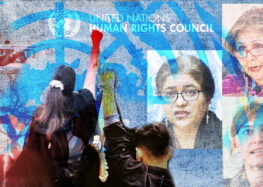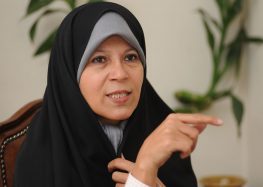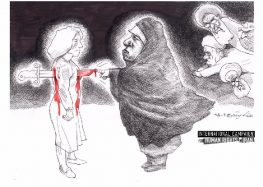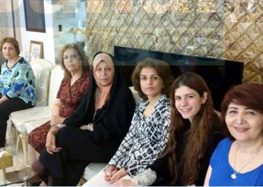Faezeh Hashemi’s Six-Month Prison Sentence Upheld
 A Tehran Appeals Court upheld the six-month prison sentence for Faezeh Hashemi, former Member of Parliament and editor-in-chief of the banned newspaper Zan, a source told the International Campaign for Human Rights in Iran. In addition to her prison sentence, Hashemi has also been banned from political and press activities for five years.
A Tehran Appeals Court upheld the six-month prison sentence for Faezeh Hashemi, former Member of Parliament and editor-in-chief of the banned newspaper Zan, a source told the International Campaign for Human Rights in Iran. In addition to her prison sentence, Hashemi has also been banned from political and press activities for five years.
“No notices have yet been served showing when the sentence will be carried out, or when she will have to turn herself in,” the source told the Campaign. “She believes that carrying out this sentence will provide support to political prisoners and their families, and it will also be a good experience. That’s why she welcomes it” as an act of solidarity, the source added.
On 3 January, Branch 15 of Tehran Revolutionary Court, which has tried hundreds of cases of post-election detainees under Judge Salavati, sentenced Faezeh Hashemi to six months in prison and a five-year ban from political and press activities on charges of “propagation activities against the regime.” This sentence was later upheld at the appeals level and has been forwarded to the Sentence Enforcement Unit of the Judiciary. Gholamali Riahi was Hashemi’s defense lawyer during the closed-session court trial.
Faezeh Hashemi is the daughter of Ali Akbar Hashemi Rafsanjani, head of the Islamic Republic’s Expediency Council. Faezeh Hashemi has headed the Islamic Federation of Women’s Sports since 1990 and is a former Member of the Iranian Parliament. In June 2011, a group of unidentified people stormed and vandalized her offices at the Federation. No investigations were ever carried out to find the perpetrators.
At the time of Faezeh Hashemi’s trial in the lower court, ISNA News Agency reported that her interview with Rooz Online, an opposition news website published outside Iran, was the reason for her charge of “propagating against the regime.” In that interview, Faezeh Hashemi spoke of the “organized” nature of plainclothes forces , stating, “presently, the country is managed by thugs and plainclothes forces are bought with money, positions, and clout.






